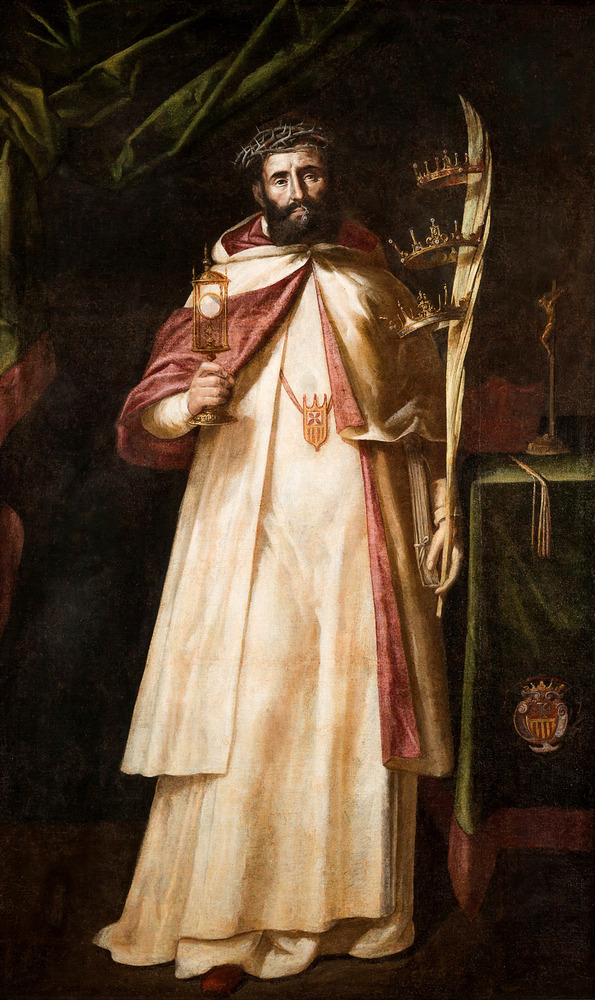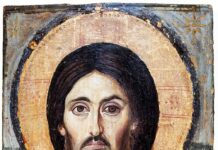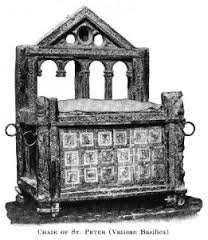Saint Raymond Nonnatus, who died on this day in 1240, was a Mercedarian priest, whose Order, as their name implies, was taskedwith ransoming Christian slaves from the Moors (that is, Muslims). We might consider that a controversial practice, as ironically incentivizing capturing more slaves to receive more in the way of reward, but in its day, good came of it. After all, freeing Christians from forced conversion, rape and martyrdom is a noble endeavour. Father Raymond was originally destined for a noble life of privilege, and ransomed hundreds of Christians. In his religious life, at one point, in accord with their vow, he offered everything he had, namely, himself in place of a number of Christians. The Muslims were happy with the trade, and they tortured the priest, at one point driving an awl through his lips and padlocking them shut so he could no longer preach Christ to them. So much for interreligious dialogue, with the further irony that this incident made Saint Raymond a patron against gossip and slander.
His ‘last’ name, really his nickname, derives from the fact that he was taken out of his mother’s womb by Caesarean section, after his mother’s death – hence, ‘non-natus‘, not born, which reminds one of the legend of Julius Caesar and Shakepseare’s play. This made him also one of the patrons of expectant mothers and women in childbirth.
Saint Raymond Nonnatus had quite the devotion before the revisions in the wake of the Second Vatican Council, in which his memorial was removed, with churches across the world dedicated to him, including the cathedral of Joliet, Illinois, and the town of Saint-Ramond, just north of Quebec City, is named after him.
Saint Aristedes was a second-century Apologist, the earliest of that group of theologians and fathers who wrote apologias defending the Faith from the attacks of pagans, in accord with Saint Peter’s exhortation in his first letter (3:15) to always be prepared to make a defense (apologia) of the faith that is in you. The most prominent of the Apologists was perhaps Saint Justin Martyr, whose feast we celebrate on June 1st, and who wrote just after our saint of today. Aristedes sent his own Apology to the Emperor Hadrian, the one who built the wall dividing England from Scotland, which still stands, after he realized the Romans could never beat the indomitable Scots.












